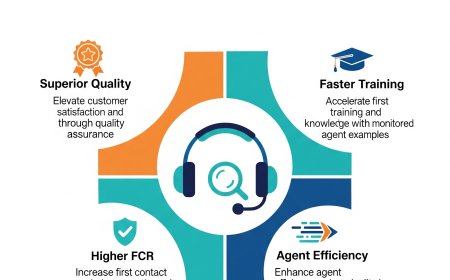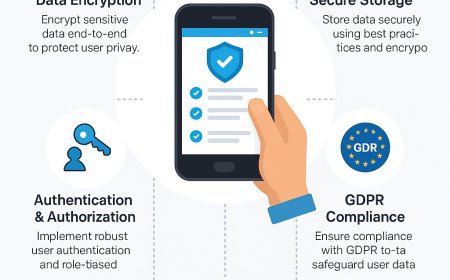Respite Care Programs: A Helpful Guide for Families and Caregivers
Learn about respite care programs and how they support families and caregivers, providing essential relief and quality care for loved ones in need.

Caring for a loved one whether theyre aging, disabled, or living with a chronic illness is a deeply rewarding but often exhausting responsibility.
Caregivers provide love, support, and constant attention, often putting their own needs aside. Over time, this can lead to stress, burnout, and emotional fatigue. Thats where respite care programs come in.
Respite care offers short-term relief to primary caregivers, giving them time to rest, recharge, and take care of their own well-being.
In this blog, well explore what respite care is, who its for, the different types available, and how it can benefit both caregivers and those receiving care.
What Is Respite Care?
Respite care is temporary care provided to someone who needs support due to age, disability, illness, or other conditions so their regular caregiver can take a break. These breaks can last from a few hours to several days, depending on the caregivers needs.
The goal of respite care programs is simple: give caregivers time off while ensuring their loved one receives proper care in a safe environment.
Who Needs Respite Care?
Respite care is designed to help family caregivers, especially those caring for:
-
Elderly parents or spouses
-
People with Alzheimer's or dementia
-
Children or adults with developmental disabilities
-
Individuals recovering from illness, surgery, or injury
-
People with chronic or terminal illnesses
Caregiving can be a full-time job emotionally and physically demanding. Even the most devoted caregivers need rest to maintain their own health and continue providing high-quality care.
Why Respite Care Is Important
Many caregivers dont ask for help until theyre already overwhelmed. But regular breaks are not a luxury, they're a necessity.
Here are a few key reasons respite care programs is so important:
1. Prevents Burnout
Caregivers often experience exhaustion, stress, and depression. Taking a break reduces emotional and physical strain.
2. Supports Mental Health
Even a short time away can help clear your mind, improve sleep, and lift your mood.
3. Strengthens Relationships
Time off can improve how you interact with your loved one by reducing tension and frustration.
4. Encourages Balance
Caregivers can use respite time to visit friends, run errands, attend appointments, or just relaxrestoring balance to their life.
Types of Respite Care Programs
There are several forms of respite care available. The best option depends on your personal needs, schedule, and resources.
1. In-Home Respite Care
A trained care provider comes to your home to care for your loved one. This is a great option for people who prefer familiar surroundings or have limited mobility.
Services may include:
-
Companionship
-
Help with bathing, dressing, or meals
-
Medication reminders
-
Light housekeeping
In-home care can be arranged for a few hours or even overnight, depending on the agency or provider.
2. Adult Day Programs
These are community-based programs where individuals can go during the day for social interaction, meals, and structured activities.
Ideal for seniors or individuals with disabilities, adult day care centers provide:
-
Supervised care
-
Recreational and therapeutic activities
-
Meals and snacks
-
Health services in some cases
They give caregivers a full day off while providing a safe and engaging environment for their loved one.
3. Short-Term Residential Respite
Some facilities, such as nursing homes or assisted living centers, offer overnight or weekend stays. These are helpful if a caregiver is going out of town or needs extended time off.
This type of care includes:
-
24/7 supervision
-
Personal care assistance
-
Medical support if needed
-
Social and recreational activities
Its especially useful for individuals who require more intensive support.
4. Emergency Respite Care
Sometimes unexpected situationslike illness, a family emergency, or urgent travelcan prevent caregivers from providing care.
Emergency respite care steps in quickly to fill the gap and ensure the safety and well-being of your loved one until you return.
How to Choose the Right Respite Care Program
Choosing the right respite care service depends on your loved ones needs and your situation as a caregiver.
Here are a few steps to help guide your decision:
Assess Needs
Think about the level of care your loved one needs. Do they require help with mobility, medication, or medical support?
Set a Budget
Some services may be free or low-cost (especially through government programs for nonprofits), while others might charge hourly or daily fees.
Check Credentials
Choose providers with licensed staff, positive reviews, and appropriate experience. Ask for references if needed.
Visit the Facility or Meet the Caregiver
If using a center or overnight program, take a tour. If hiring in-home help, arrange a meeting first to ensure comfort and trust.
Is Respite Care Covered by Insurance?
Respite care programs costs vary based on location and type of service. Here's how it may be funded:
-
Medicare generally does not cover long-term respite care but may help during hospice care.
-
Medicaid may cover some respite services, especially for low-income families or people with disabilities.
-
Veterans Affairs (VA) programs may offer respite care for eligible veterans and their caregivers.
-
Nonprofits and local support programs sometimes provide low-cost or free respite services.
-
Private insurance may offer limited coveragecheck your policy details.
Some caregivers also pay out-of-pocket for services they can afford or receive financial help from family.
How Often Should You Use Respite Care?
Theres no one-size-fits-all answer. Some caregivers use respite care weekly, while others may only need it once a month or during special situations.
Think of it as part of your self-care plan, not just an emergency option. Regular breaks help you be a better caregiver in the long run.
Tips to Make the Most of Respite Care
-
Start small. Try short breaks to ease into the idea.
-
Plan enjoyable activities for your breakwhether thats a nap, a walk, or a night out.
-
Communicate with your loved one. Explain why you're taking time off and reassure them that theyre in good hands.
-
Stay flexible. Explore different types of care until you find what works best.
Final Thoughts
Caring for a loved one is a full-time commitment and one of the most meaningful roles anyone can take on. But it doesnt have to be done alone. Respite care programs offer the support, time, and space caregivers need to rest and recharge.
Whether you need help for a few hours or a few days, theres a program out there that fits your needs. Taking a break doesnt mean youre letting someone downit means youre taking care of yourself so you can keep caring for others.
















































